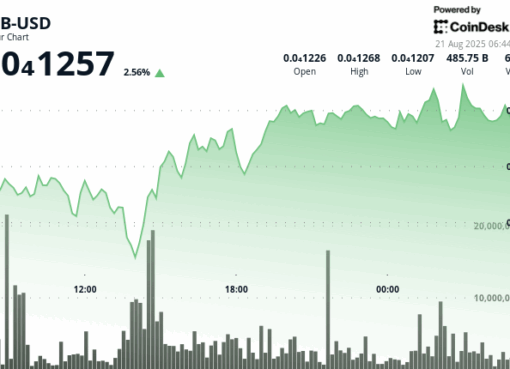- Companies fined for making nearly 50,000 unsolicited marketing calls
- £120k issued in fines for companies targeting people with dementia in predatory marketing campaigns
- Victim became “afraid of answering the phone” after repeated calls
- Over £1.5m in fines issued for predatory marketing calls
We have fined two companies for making unlawful marketing calls to individuals registered with the Telephone Preference Service (TPS).
WerepairUK Ltd, based in Tonbridge, has been fined £80,000 for making 42,688 unsolicited calls. It has appealed our decision.
Service Box Group Limited, based in Hove, East Sussex, has been fined £40,000 for 5,361 calls.
These calls were made to people who had explicitly opted out of receiving marketing communications, violating their privacy and in some cases causing significant distress. There is clear evidence that in both cases, older people and those living with illnesses such as dementia were targeted. Some individuals were subjected to repeated phone calls, attempting to pressure them into buying warranties for white goods, such as fridges and washing machines, that they did not need.
WerepairUK Ltd has appealed our decision.
We are encouraging the public to take proactive steps to safeguard the loved ones in their lives:
- Look out for rogue direct debits being paid for unknown reasons, and make sure they have not signed up for services they may not be aware of
- Ensure they are registered for the TPS, which provides a free and easy way to opt out of unwanted marketing calls
- If they are still receiving unsolicited marketing calls despite being registered, report these incidents to us without delay
Andy Curry, Head of Investigations at the Information Commissioner’s Office, said:
“We have taken decisive action against WerepairUK Ltd and Service Box Group Limited; two companies that have caused significant distress by targeting people who are at greater risk of harm. Such predatory marketing practices are unlawful and deeply exploitative.
“We remain steadfast in our commitment to protecting the public, especially those who may not be in a position to defend themselves against such tactics.
“As well as the action we’ve taken, there are some simple steps we can all take to protect ourselves, family and friends against unlawful marketing. Registering with the TPS is free, quick and easy; And, if you are registered with the TPS and still receive calls, then please let us know via our on-line reporting tool. We can then take action to stop them.
“These fines bring the total penalties as part of this latest wave of action against predatory marketing to £1.57 million. This reflects our determination to making sure those responsible for these harmful actions are held accountable.”
Using intelligence shared by National Trading Standards, we found people living with illnesses such as dementia had been unlawfully called and sold policies that they neither needed or understood.
One such example is the mother of Juliet Tibbels, who was regularly called by firms despite being registered with the TPS. Her mother, now aged 90, has dementia and was living independently in her home near Poole, Dorset, at the time calls were made to her. She was cold called by multiple companies selling services such as white goods warranties and alarm pendants.
WerepairUK Ltd sold her a white goods warranty and boiler policy. The company did not provide our investigation with any evidence that she had consented to receiving marketing calls from them.
In a statement today, Mrs Tibbels said:
“My mother has dementia but was living independently on her own at the time. She was cold called every day by different companies trying to sell things. Even though I left notes around the house saying not to give out bank details, she still went along with the callers because she was confused and felt that if she said ‘yes’ she would be able to get off the phone quicker. She did not need these policies at all.
“Around ten policies from various companies were taken out. One company even sold my mother the same policy twice. Callers would often start by saying ‘there’s nothing to pay today’ then ask for her bank details.
“I would notice money going out of her bank account, but it was unclear who was making the charges. Often there would be different company names on the paperwork, so it took time and lots of detective work to find out who to chase up. I’d often spend a whole morning trying to find out who the firm was, their telephone number and, once I got through to them, have to explain that I had power of attorney and request a refund. A five-minute phone call would be confusing and anguishing for my mother, and lead to hours of work for me.
“Eventually, my mother became afraid of answering the phone. Her friends would call me because she wasn’t answering and they were concerned for her. I had to purchase a call blocker that enabled my husband and I to remotely accept or decline calls as they were made to her.
“The people who make these cold calls know very well what they are doing and they are taking advantage of the most vulnerable members of our society. They are persuading people to part with money for goods and services they don’t need and they know this. They are just lining their own pockets without any thought to the consequences. I’m pleased action is being taken.”
To learn more about stopping spam marketing calls and emails, visit our guidance here. To register with the TPS, please visit here. To submit a complaint about nuisance calls, click here.
Notes to editors
- The Information Commissioner’s Office (ICO) is the UK’s independent regulator for data protection and information rights law, upholding information rights in the public interest, promoting openness by public bodies and data privacy for individuals.
- The ICO has specific responsibilities set out in the Data Protection Act 2018 (DPA2018), the United Kingdom General Data Protection Regulation (UK GDPR), the Freedom of Information Act 2000 (FOIA), Environmental Information Regulations 2004 (EIR), Privacy and Electronic Communications Regulations 2003 (PECR) and a further five acts and regulations.
- The ICO can take action to address and change the behaviour of organisations and individuals that collect, use, and keep personal information. This includes criminal prosecution, non-criminal enforcement and audit.
- To report a concern to the ICO telephone call our helpline on 0303 123 1113, or go to ico.org.uk/concerns.




